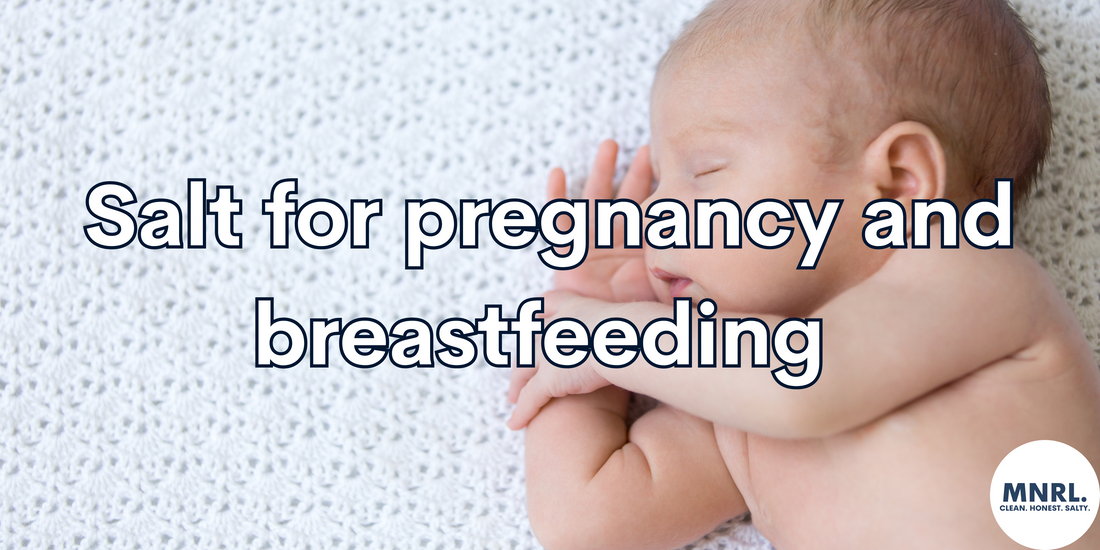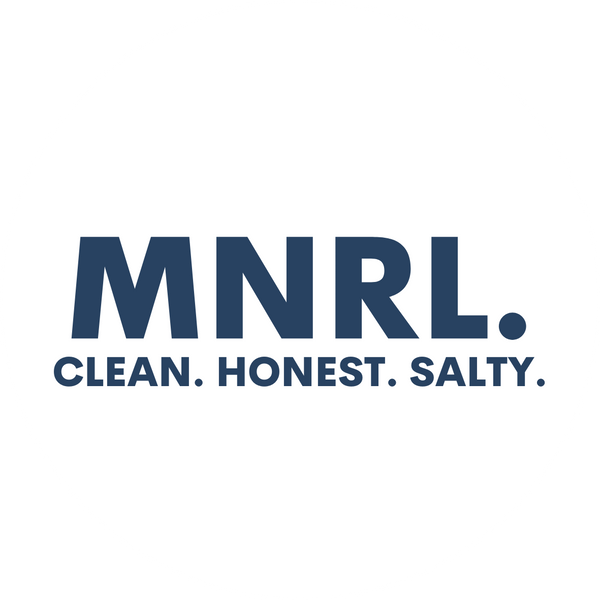
Salt for pregnancy and breastfeeding
Share
Pregnancy can be rough, your growing baby demands and zaps almost everything from you, calories, protein, vitamins, minerals, sleep and general comfort. Included in this list are electrolytes, particularly sodium, potassium, magnesium and calcium. Like most other nutrients, the needs for electrolytes increase during pregnancy and breastfeeding. To me, this explains a common craving pregnant and breastfeeding women experience; chips (nachos was a common request from my wife during pregnancy). Our bodies are pretty clever communicators and cravings will generally be signalling something that our body needs, but sometimes we need to peel back the layers to reveal what we’re really after. If you’re craving chips, you’re likely needing more salt.
Sodium is particularly important for a developing fetus. Sodium intakes of less than 3g per day have been shown to slow growth, reduce birth weight, shrink the cardiovascular system and impair fetal kidney function. Despite this, still to this day mothers are often told to avoid salt! The idea here is the (misinformed) belief that sodium is linked to preeclampsia, a pregnancy complication where women experience high blood pressure along with swelling of the hands and feet. Preeclampsia is a result of changes to a trio of hormones, the renin-angiotensin-aldosterone system. These hormones help to regulate blood pressure and fluid balance. However, several recent studies have examined the relationship between sodium intake and preeclampsia risk and found no link. Women with preeclampsia are actually more likely to have low blood sodium compared to others. Being deficient in sodium triggers our body to go into sodium retention mode, resulting in hormonal changes that ramp up blood pressure.
Sodium is also crucial for breastfeeding, for a couple of reasons, one is it increases milk supply. This is why you’ll find high amounts of salt in most ‘lactation cookies’, and salt lick blocks on dairy farms. The other reason is that sodium makes the breast milk more nutrient rich. The sodium intake of the mum is directly linked to the amount of sodium in her breast milk, and babies need electrolytes too. Adequate sodium intake as a baby is shown to be important for cognitive function later in life, improving memory, motor function and IQ when the kids are 10-13 years old.
So how much salt do we need when we’re eating/drinking for two? The latest science suggest that pregnant or breastfeeding mums should be aiming at the upper end of a daily dose of 4-6g of sodium. Alongside adequate sodium levels, there are a few other important electrolytes during this time of life. Potassium helps to balance the effect of sodium and helps women maintain healthy blood pressure, we should aim for 3.5-5g per day. Magnesium supplementation has been shown to reduce pregnancy complications, a good target is 400-600mg per day. We can get some of this through food e.g. meat, avocados, bananas, added salt etc, but a supplement can really help (especially if your hormonal changes are messing with your appetite)!
Daily electrolyte supplementation started for us when we learnt of its importance when we were pregnant with our first child and has become a huge passion of ours. We started MNRL. while pregnant with our second, and my wife had a much easier time pre- and post- partum with access to as much salt as she wanted, despite juggling 2 under 2! If you are a mum, or know one, we can’t recommend this enough! It’s time to get some MNRL.
